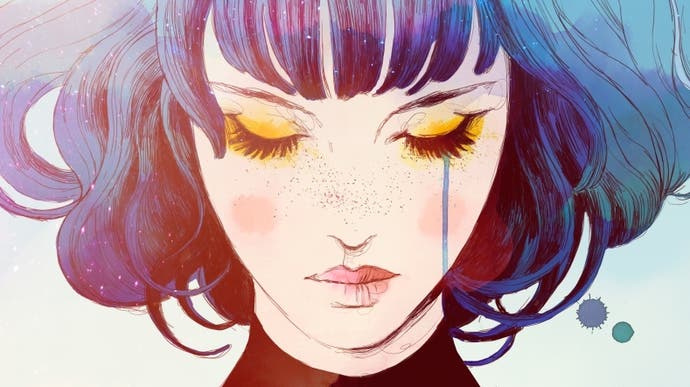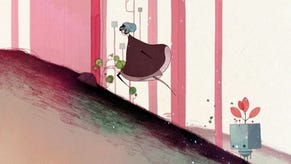How games can help to explore the many colours of grief
From Gris to Crossing Souls.
Emotions are complicated. This isn't something you need to be told by a psychologist, it's something that as a human being you intrinsically understand to be true. The advantage of complicated things is that you get to explore them, really dive into them and dissect them. Maybe you'll never understand the exact science behind it, but getting to see the potential for each individual feeling is something that gaming does very well. After all, with an interactive medium such as this we can become another person and inhabit their heart, see what they see and feel what they feel - to a certain degree, anyway. Inevitably your own experience will influence just how much you can empathise with any story, but sometimes even if you haven't experienced something first-hand, maybe going through it in a game helps give you an idea of the real-world emotions that come with it.
There are plenty of instances of anger, love, fear, and joy in video games, but there are far fewer instances of grief. Grief is complicated. It is simultaneously all-consuming and life-altering. No one goes through it and is the same at the end as they were before it. Grief can be black and heavy, dragging you down into its depths and trying to drown you. Grief can be grey and apathetic, sucking your soul out of you and refusing to give it back. Grief can also be white and blinding, sparking within you a rage that can be targeted at anyone, an anger that will try and immolate you from the inside out. I've felt so many different kinds of grief. Unfortunately I have lost a few people I care about. But none hit harder than losing my brother.
Replicating that in a game is almost impossible. Joy is relatively easy to replicate because finally beating a boss after countless attempts is euphoric. Anger can be generated in the same way: after the 17th loss to any monstrosity you're going to feel angry. Grief just isn't like that. Losing some progress in a game sucks and seeing a character you love butchered is rough, but at the end of the day it's only a game. To really be able to relate to a feeling of loss you need to see the character working through the grief, see the fallout, not just whatever caused it.
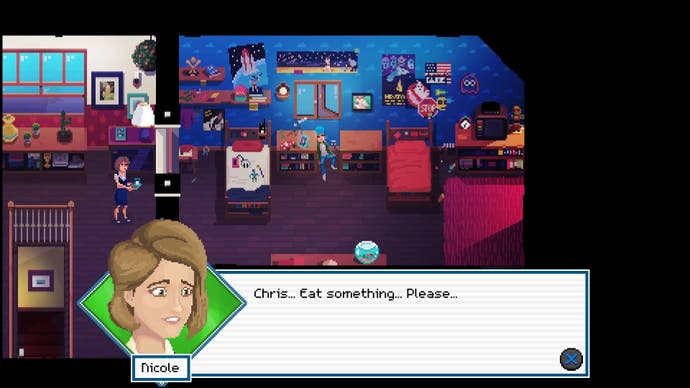
2018 has been good for video games in general, at least I think so anyway. It's also been good for the indiesphere, indie arena, indieverse? With the smaller games tends to come a more personal touch, an essential component for a truly moving story. The first one that hit me in 2018 was Crossing Souls from Fourattic. Crossing Souls has a great art style and has the player switching between the normal world and the spirit world as they progress through the adventure. Fairly traditional stuff so far. But quite early on, the leader of the little group the game focuses on loses his younger brother. I lost my youngest brother a few years ago. It's not surprising, then, that this hit me like a train, not only because of the narrative itself, but because the timing of my playthrough wasn't far from the anniversary of my brother's death. It crushed me.
The thing that made it so much more intense, though, was the way the lead character reacts. If we're assigning the colours I mentioned earlier, he goes through a grey grief. He's lost, empty, almost apathetic in his mourning, not of other people, but of life. He's helpless, he doesn't know how he will get through this and no one knows how they can help. I'm a white dude with tattoos so I see myself in games a lot from a visual standpoint, but I've never seen myself in a game emotionally. It felt like someone had animated my own grief.
And it struck me that this isn't something we see often enough. It is rare that we see our video game heroes overcome with the kind of life-changing sadness that nearly all of us will face at some point. It's much more likely that, upon losing someone, the main character goes on a rampage and that's the last you hear about it.
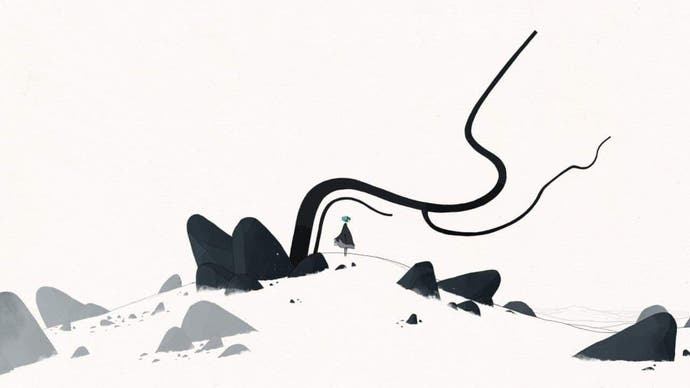
Gris is a very artful puzzle game, one that has beautiful aesthetic and a haunting story. It was also the other game that hit hard in 2018, in a very different way. Where the grief in Crossing Souls was so close to my own it was uncanny, Gris isn't as specific. Instead Gris deals in metaphors and gently alludes to emotions and events. When things are open to interpretation like this, what you experience is more of a reflection of yourself than anything else. Gris for me was very much about someone working through a loss. The colours reflect this perfectly with the world being grey and uncaring to begin with, but with colours flowing back in as you drag yourself through your problems.
Gris does a lot of things well, but perhaps its most impressive feat is how it portrays the relapse. A relapse is often considered a physical thing that affects physical ailments, but I assure you it happens when you're grieving too. The emotional relapse in Gris is first represented by a giant black bird, one that screams at you to prevent you from moving forward. It later becomes a gigantic eel, threatening not just to stop you, but to actually consume you. It is a very apt portrayal of that horrible feeling constantly hounding you, dragging you back in. Just feeling better can feel like a battle.
In the game, you finally break through thanks to the light and a giant statue. The real-life version of this might be your friends, family, or therapy. While you can work your way through these feelings on your own, you'll be putting yourself through needless hardship when life is already at its worst. Reach out when you are at your lowest - that's what friends are for after all.
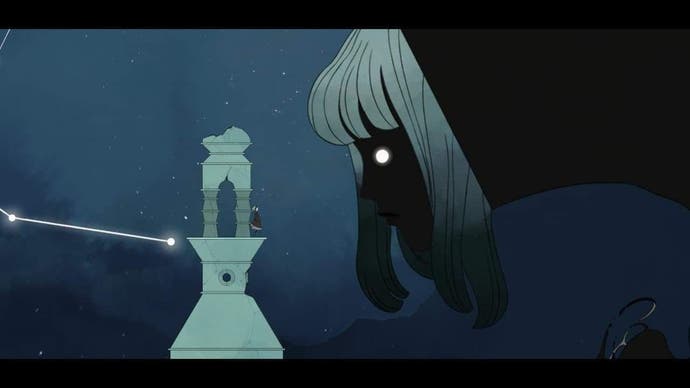
When I began this piece, I wanted to talk about the differences between the specific and the more vague representations of grief I found in two very different games. I now think, in all honesty, that just talking about grief in games at all is important. In fact, just talking about grief itself is important. We need to see this. We need to see characters struggling to go on, we need to see them cold and empty, broken and apathetic. We need to see not just the loss, but the human response - not just screaming and blowing a demon's head off. We need to see this because if the only things that are guaranteed in life are death and taxes, well then grief is going to factor too.
We don't need to be unprepared to face these emotions. Games can do so much now, so why not allow them to get us talking about the hard subjects in life?
If you think you or someone you know may be suffering, please don't carry on in silence.
In the UK:
You can call the Rethink advice and information service on 0300 5000 927 (10am-1pm).
Also the Depression Alliance, a charity, has a network of self-help groups.
Samaritans offers a 24-hour confidential helpline: 116 123
In Australia:
You can contact the BeyondBlue support service in 1300 22 4636
In the US:
You can call the Crisis Call Center on 1-800-273-8255 at any time of the day.
If you're more comfortable talking via text than on the phone, 7cupsoftea.com offers an anonymous chat service.
